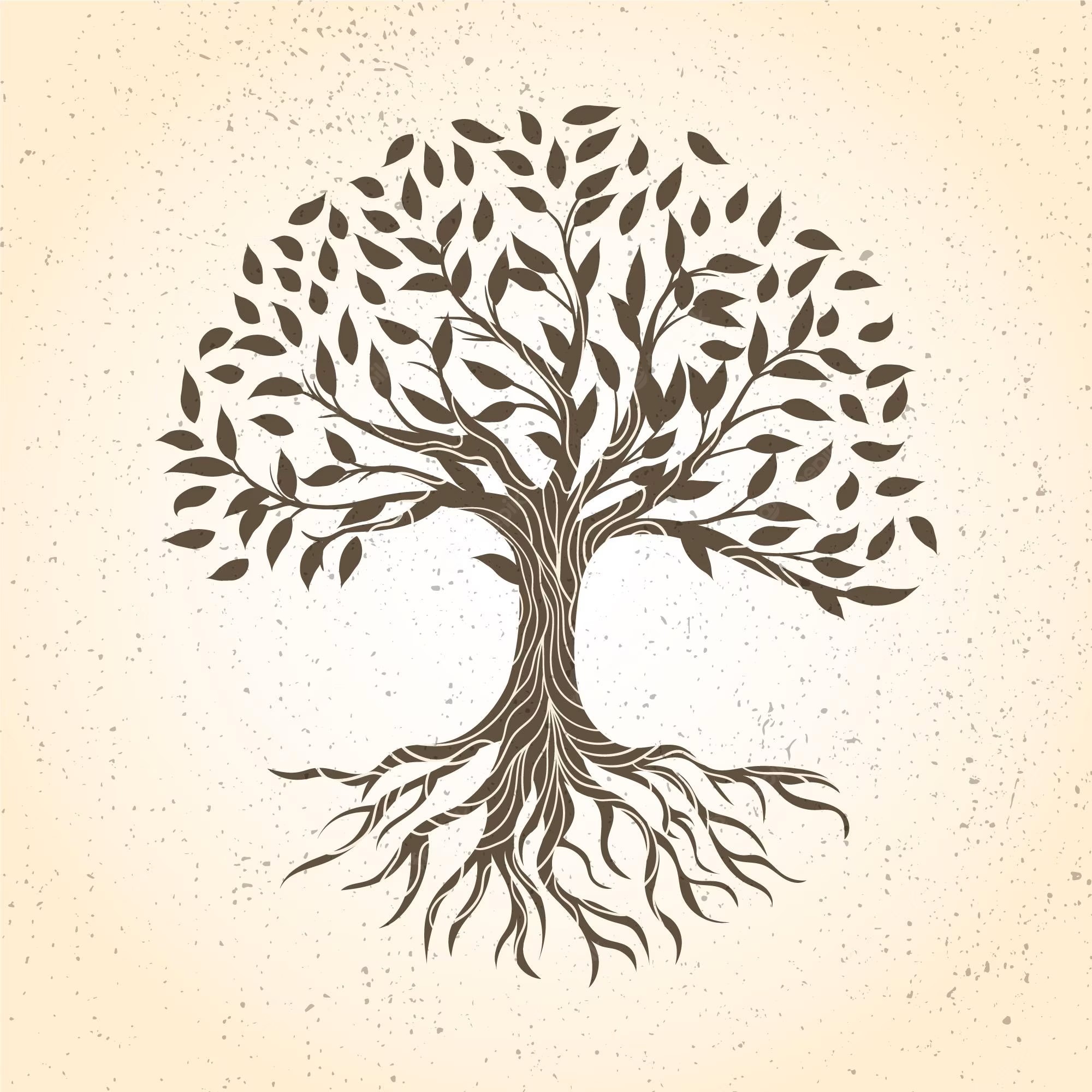Edit: this question has been answered now. Thank you to everyone who took the time to help me understand.
the premise that race is not a natural, biologically grounded feature of physically distinct subgroups of human beings but a socially constructed (culturally invented) category that is used to oppress and exploit people of colour.
Okay… But we can take a DNA test and get our ancestry, telling us what percentage of what races make up our overall ethnicity. So how is race a social construct and not a biological feature, when we have a scientific method to determine our race? This part of the philosophy has been bothering me ever since I read it, and I’ve been hesitant to ask because of how offensive people get when you question this system.
Everyone has different DNA and nobody refutes that, but the lines at which race are defined are completly arbitrary. Are you considered black if you have 50% sub Saharan African DNA? Most would say yes. Are you black at 25%? How about at 5 or 10%? The slew of different answers is a clue that race is just a social construct borne of perception rather than hard fact.
Similarly, a lot of groups that are considered “white” today would not have been in the slightest if you were to go back 100+ years. The Irish, Italians, Greeks, among others were not considered white until more recently than you might believe.
Thats the crux of it, race is only truly defined by these arbitrary lines in the sand that people draw, and these lines are different for different groups and individuals. Race is only real because people perceive it to be. We could divide up society based on hair color or if your ear lobes hang or are directly connected to your head and it would make just as much sense, which is to say not much.
Edit: I might add that there’s more genetic diversity in sub Saharan Africa than anywhere else in the world but they all get lumped together as black because “skin dark”. It’s stupid when you examine it.
Add to that somebody could be genetically “black” and pass as “white”. It isn’t based on DNA; it’s based on perception.
My go-to examples are Melanesians and Indigenous Australians. They sometimes have darker skin than people we in the West call black, and if we saw one of them walking down the street in a Western country, we would think they were black. But they are quite genetically distant from Sub-Saharan Africans. They just also have very dark skin pigmentation.
So are they both the same race? If not, what are we calling race here? Because I’ve only ever heard it described in terms of skin color.
I could be wrong, but I believe that I’ve heard there’s more genetic diversity in sub-saharan Africa than pretty much anywhere else. Which kinda makes sense when you think about how that’s where Homo sapiens first evolved.
(throw in blond-haired melanesians)
I’ve heard it said that the average Englishman and the average Indian are more genetically similar than two random Englishmen, too.
In other words, if that’s true, there are some general trends in genetic differences between “races”, those trends are, overall, far smaller and less significant than the random differences that pop up by chance within a single race.
Ah, so it’s the race, like what you would put on a government form that they’re disputing, not the fact that we all have ethnicities which make up our person. I guess that makes sense, although it seems like splitting hairs to me. Nationality and ethnicity are already two different concepts. I suppose “race” in this context would be like you said, saying someone is “white” as opposed to saying they’re of English ethnicity. Is that right?
CRT focuses on how this arbitrary idea of race shapes how people are treated, especially on a societal scale. We divide people by wealth, by where they’re born, what gender they are, etc. All of these things affect how people are treated. I find most of the pushback is because some white people feel attacked when someone points to the fact that whiteness is a status.
I’ve seen push back by people of various backgrounds, not just “white” people, which we shouldn’t actually say, since it’s a construct in direct contradiction with the assertions of CRT. Right? To be clear, my post isn’t meant to be a criticism of the CRT statement. I asked so that I could more clearly understand, which I do now, thanks to you and some other people here. Thank you.
Not Rick had a great answer, but I wanted to try to contribute simple examples:
True, skin color is a trait that can be traced by DNA, but so is eye color, or hair color. We could easily create “races” based on “Brown hair vs blonde hair”, “brown eyes vs green eyes”, “people who need glasses vs people that don’t”, “shorties and tall-os”, “those who can roll their tongue, and the inferior swine that were never blessed by the Great tongue father.”
All traceable in the same way as skin color, but we consider them “features”, and not race defining traits.
Who decided that? And why?
Yeah that’s clear. As to the why, I suppose it’s because our brains are wired to categorize things and find patterns everywhere. It is useful to have labels for groups with common traits, although I do recognize the issues with that when it comes to systemic discrimination.
Edit: thanks for the answer!
The thing is, hair is equally as heritable, and immediately visible. As humans, we can see and categorise skin equally with hair.
The fact that we don’t use hair as a major defining trait though is arbitrary. That’s just social norms, nothing more.
We kind of do though. There’s nothing official about hair types, but there’s all kinds of stereotypes about people with certain hair colors, like blondes, or redheads. There’s even some scientific evidence that people with red hair have higher pain thresholds.
Those are not major defining traits. They could be, but they’re not.
Not_Rick has a great answer but I will add something. Your question about the quote you posted is based on a disagreement about what race is, between you and social scientists. The phrase “we can take a DNA test and get our ancestry, telling us what percentage of what races make up our overall ethnicity” already assumes that genetics = race, end of story. But this is an unfounded assumption. All the test can tell is our genetics. Not_Rick offered some good examples for the counterpoint, that genetics ≠ race. If you disagree with that basic premise then you will always be bothered by modern theories on the subject such as CRT.
Once you see that race clearly is not just genetics, you can start asking what it truly is and what things do determine one’s race. These are much more interesting questions. For example, a new question might be ‘what has been the historical relationship between ethnicity and “being white” in the US’? And let’s not even start on the ridiculousness that is the census form.
The DNA test is just testing for genes which tend to be in certain groups - but that’s not necessarily the case - and the lines they draw between groups are arbitrary.
You’re conflating a few different concepts, and misunderstanding how DNA tests work. …And the only thing any of this has to do with CRT is that these questions are a symptom of it.
Race, ancestry, and ethnicity are not synonyms.
Race is “A group of people identified as distinct from other groups because of supposed physical or genetic traits shared by the group. Most biologists and anthropologists do not recognize race as a biologically valid classification, in part because there is more genetic variation within groups than between them.” (American Heritage)
Ethnicity refers to “people sharing a common cultural or national heritage and often sharing a common language or religion.” (American Heritage)
Ancestry is biological lineage.
DNA tests approximate the location on the globe (overlaid with national borders) where your ancestors lived at some point in time. They do this by taking DNA samples of people from all around the world, mapping that with human migration patterns, and comparing your DNA to that data pool to determine the statistical likelihood that you’re ancestors lived in a certain place within a certain time period in human history.
DNA tests do not determine race (social classification) or ethnicity (cultural classification). DNA tests can determine some physical traits, but not everyone with the same traits belong to what we might consider the same race. And not everyone who considers themselves to be of the same race have the same DNA.
There is no biological definition for the word “race”.
Just nitpicking, but there is a biological definition of race (albeit informal), which you quote the definition of. it’s just that it cant be applied to humans because (as your quote mentions) there tends to be greater variation from within human “races” than there is between some “races”.
There’s also the issue that there’s no “boundary” or distinction between the human “races”, and an actual race would need to be distinct from the rest of the specie population in order to be recognized as an actual race.
Thanks for the explanation.
we impose meaning on the world. even the idea that each of us is an individual instead of one unit is a construct. so while we can distinguish between different biological markers, the meaning we impart to that distinction is a construct. we can draw the lines arbitrarily (and we do). the distinction of race is no more natural or meaningful than a distinction based on country of origin.
I’m not sure I follow. Our genetic markers determine how we will look, what types of diseases we’re predisposed to, and that sort of stuff. That is a very real and established reality. How is that not our race? It is more meaningful than our nationality, since it is literally our genetic makeup. I’m not more likely to have lactose intolerance if I’m born in Japan, but am a different ethnicity, but I am more likely if I’m born in the USA and have Japanese ancestry. Is it the historical oppression associated the word “race” that is the issue?
disease and lactose intolerance are also constructs. all meaning is constructed. without an observer, there cannot be meaning. you get to decide which constructs you uphold.
Weird. My DNA test didn’t tell me I am X% white, Y% black, Z% Native American. It told me my DNA was a majority match for people that hailed from regions A, B, and C.
Are you sure you know how ancestry DNA tests work?
There isn’t even agreement on what the word means. When I was little my science book defined it as two individual are the same race if they can have offspring together. By that rule all humans are the same race.
Race is related to ethnicity but also relates to a lot of cultural factors. Race is also tied to people’s perception of a person, and also tied to an individual’s identity. There are more and different races than ethnicities.
Additionally, race is linked to discrimination. Two people can be the same ethnicity but different races, because their culture and ancestral nationality are different. This often leads to people of a certain race being seen as lesser than, even though there is no biological difference. I.e. the Irish, and Italians, who are considered white now but weren’t in the past.
On top of that, people of different ethnicities can be lumped into a singular race and be discriminated against. Like Hispanic people, who have native American, Spanish, and many other ethnicities mixed in. Or Asians who have probably the most varied amount of ethnicities in their singular “race.”
Conversely you can have someone who is mixed and is technically mostly genetically ethnicities that are considered white, and would be white passing, but because they are known to have a black parent or grew up in the black community, they are considered to be a person if color, and are discriminated against in the same way as someone who is more ethnically a POC.
This discrimination and racism can cause generational trauma and wealth disparity. Which is important to learn about so people can understand how systems, at least in the U.S., are literally built in a way that makes traditionally discriminated against races more likely to be born into poverty and less likely to get out of it. CRT strives to educate the our population on these issues.
CRT teaches about the fact that Black people and other POC in the United States have been discriminated against for generations, this discrimination is/was codified in law and local ordinances. Like laws limiting POC from getting certain loans, or moving into certain neighborhoods. Then building roads around those neighborhoods separating them from the rest of the town, making it harder for those individuals to get resources. Or the fact that, in the U.S.,public schools are funded by housing taxes in an area rather than by equal funding. Meaning that low income areas (usually populated by minorities because of the previously mentioned reasons) will inherently have less funding.
All this leads to the fact that even though a lot of the racist legislation in the U.S. is gone, a lot of minorities in the U.S. have been lower income for generations. Meaning a lot of them are starting from less and will have less opportunity to achieve because the just don’t have the same resources and education available. And today, because of all this, we are seeing things like schools being more segregated than ever, even more than they were even in times where segregation was in law.
If our population is not educated on these topics, these things will never change. These people will never get the help they need. This is why CRT in a lot of experts opinions is sorely needed in the American education curriculum.
The social construct of race is which features we consider important enough by which to categorise people. So in the USA, this is white, black, asian or hispanic. Maybe native. Those categorisations are based on real observable traits, but we could choose other categorisations. It notably groups together traits which we can easily distinguish and pull out as subdivisions, such as south-east Asians.
We could redraw these groupings: we could for example together north Africans, middle-easterners and Indians, separating out those from southern and central Africa. We could separate Europeans so that Scandinavians, Finns and Slavs are together, separately from western and southern Europeans.
These concepts confuse me. There is clearly a range of variation in physical form of humans. Over time we’ve assigned meaning to some of those variations. Sure you can DNA test and try to correlate those variations to DNA but the underlying idea that assigns meaning to it all is purely made up. Historically, I can’t see anything positive to come out of these constructs and I see nothing useful about them. Ultimately, what does that have to do with CRT (seriously, after all these years I can’t even tell you what CRT is, it seems like an idea for judging bias in legal settings, not something 3rd graders will ever learn).
Your question has nothing to do with CRT, but with science (I am very critical to CRT if you want to know).
There is a scientific method to classify human beings by genetics. You can group by closeness of genetic code. When you do this you will arrive something similar to ethnicity NOT to race. Race classification is akin classification by eye color, while has some relationship to genetics - it has very little relationship and the genetic code similarities between two of ethnic groups, one has white skin, another have black skin, may be significantly larger than genetics similarity between two groups with black skin. This is why it is unscientific classification.
Thanks!
I want you to understand something: what you’re asking about is much more basic than critical theory. You’re talking about the sociological theory of race. I’d avoid trying to understand critical theory without some more basic sociology building blocks because you frankly won’t understand what they’re talking about otherwise.
Do you have any suggestions on where to start?
I could only recommend an introductory college course since that’s where I picked up the basics. Hopefully someone else has better resources. An important thing about sociology is understanding the different approaches there are to things and the language those approaches use.
I took sociology and cultural anthropology in college, but that was 30 years ago, and they’re apparently teaching very different things now.
deleted by creator
deleted by creator












